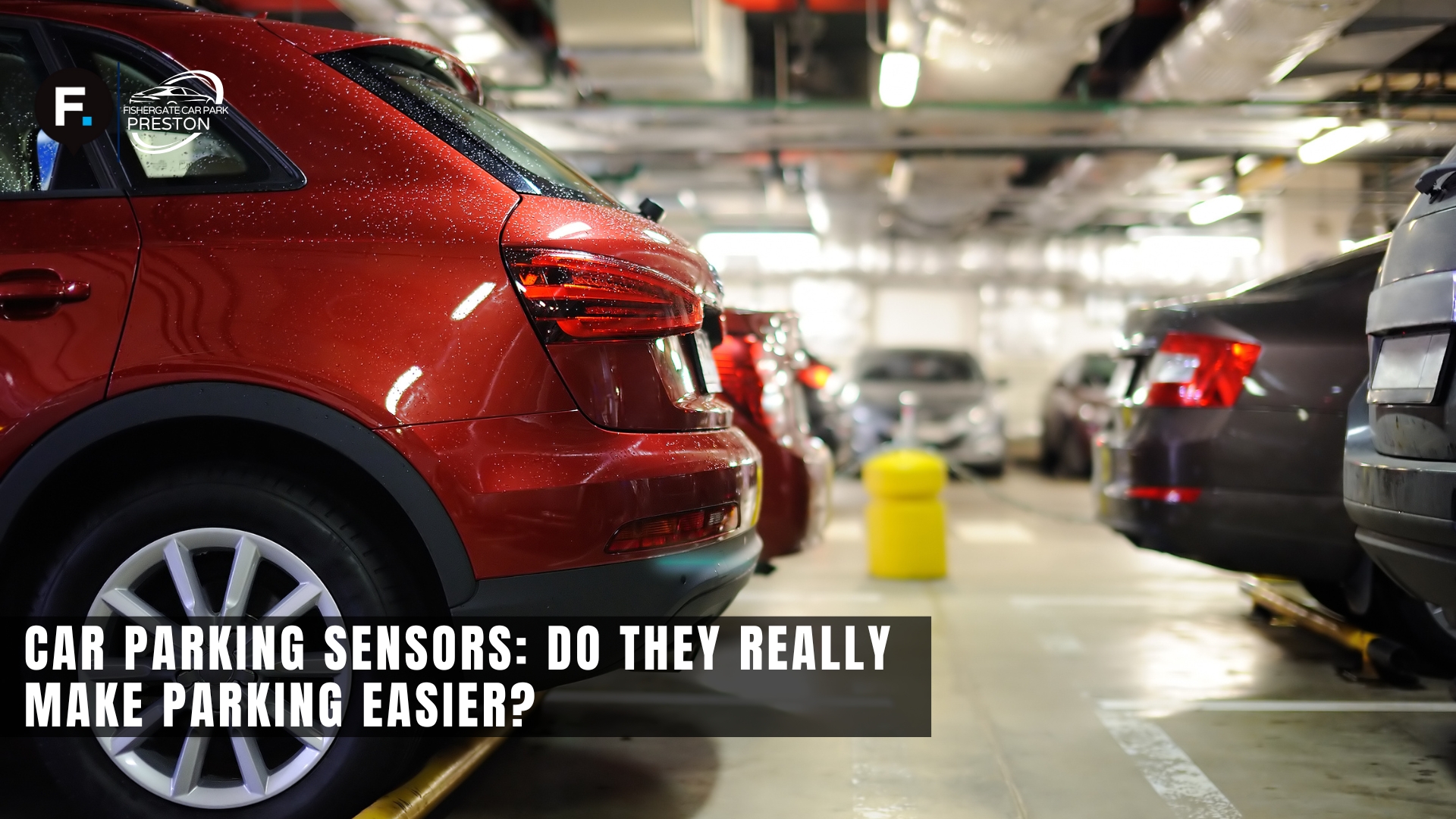Car Parking Sensors: Do They Really Make Parking Easier?
Are car parking sensors really helpful for drivers in tight spots? At Fishergate Car Park Preston, we’ve seen firsthand how these little devices can reduce bumps and boost confidence. From parallel parking in busy town centres to reversing in narrow car parking spaces, sensors can be a handy aid. This guide walks you through how they work, what to expect, and what to watch out for. Once you know what these sensors are, it helps to understand just how much accuracy they can offer.
What Are Car Parking Sensors and How Do They Work?
Car parking sensors are electronic devices that use sound waves or cameras to detect nearby objects while parking. Most systems, like a car park sensor system or a car reverse parking sensor, alert the driver with beeps or visual cues as the vehicle approaches an obstacle. Many vehicles utilise ultrasonic sensors at the front and rear, although some are equipped with a comprehensive car parking sensor system that includes a camera setup. They are often fitted into bumpers or retrofitted to older models. Knowing the types of feedback they give makes it easier to judge their accuracy.
Do Parking Sensors Help You Park More Accurately?
Yes, parking sensors can help you park more accurately by warning you when you’re getting too close to objects. Whether it’s a rear car parking sensor or a more advanced car parking radar system, these tools offer real-time feedback. They reduce the guesswork when squeezing into a tight bay in a busy car park. It’s especially useful for drivers still building confidence. Of course, not all parking sensors are built the same, which leads to the next point.
Are There Different Types of Car Parking Sensors Available?
Yes, there are different types of car parking sensors, including ultrasonic, electromagnetic, and camera-based options. Ultrasonic sensors are the most common, detecting obstacles with sound waves, while electromagnetic sensors create a magnetic field. Some newer car parking sensors come with built-in cameras for added visuals. Options like front and rear systems or even full car parking alarm systems offer varied support. How well these work often depends on the weather or where you’re parked.
How Reliable Are Sensors in Bad Weather or Tight Spaces?
Sensors are generally reliable, but they may struggle in adverse weather conditions or extremely tight spaces. Rain, ice, or dirt can reduce the accuracy of an ultrasonic car parking sensor circuit. Electromagnetic versions may also misread metallic surroundings. A sensor for car parking works best when kept clean and used in conjunction with good judgment. This serves as a key reminder that technology is only part of the equation when it comes to parking.
Can Parking Sensors Replace Good Driving Skills?
No, parking sensors cannot and should not replace good driving skills. They act as an extra set of eyes but are not substitutes for awareness and judgment. Many drivers use parking sensors as a backup, rather than as their main guide. Parking safely still relies on your ability to assess angles, distances, and surrounding cars. If you’re navigating busy areas like Preston town centre car parks, investing in both front and rear sensors might offer more confidence than you expect. The benefits may come as a surprise.
Do Front and Rear Sensors Offer Equal Benefits?
Yes, both front and rear sensors offer equal but different benefits, depending on your parking needs. Front car parking sensors are helpful for tight forward manoeuvres, while rear car reverse parking sensors are essential for backing into bays. Together, they provide a fuller picture of your surroundings. Many car parking sensors, both front and rear, are now standard in newer vehicles. But like any tech, they come with a few trade-offs to consider.
What Are the Downsides of Relying on Parking Sensors Too Much?
The primary drawback of relying too heavily on parking sensors is a reduction in driver awareness and skill. Drivers may start ignoring mirrors or surroundings, expecting the car parking device to catch everything. False alarms from objects like rain or kerbs may also lead to confusion. A good balance between sensor use and driver caution is key. Whether you’re navigating a public car park or a private driveway, it’s also useful to know how common these systems are in newer vehicles.
Are Parking Sensors Standard or Add-On Features in Most Cars?
Yes, parking sensors are standard in many new cars, but they can also be added as optional features. Basic car parking sensors come fitted in mid-range vehicles, while high-end models may include camera-linked systems. If you’re unsure, you can check online with searches like does my car have parking sensors. Even aftermarket options are now widely available. And if your car is a bit older, there’s still an option worth considering.
Is It Worth Adding Parking Sensors to an Older Vehicle?
Yes, adding parking sensors to an older vehicle can be worthwhile if you frequently park in busy or narrow areas. A car parking sensor system is an affordable upgrade that improves safety and reduces stress. Rear sensors are typically easier to install, while full kits often include cameras and alarms. Brands now offer parking sensors for car models of all ages. You’ll quickly notice the benefits when you park with greater confidence and security.
How Do Parking Sensors Improve Safety and Confidence While Parking?
Parking sensors enhance both safety and confidence by helping drivers avoid collisions and park with greater precision. Whether using ultrasonic sensors or models with built-in cameras, these tools provide real-time feedback for safer, quicker adjustments. They not only protect your vehicle but also help prevent bumps and scrapes. If you’re curious about how these systems can benefit your daily driving, Learn more and discover how parking sensors can make every journey less stressful.


Leave a Reply